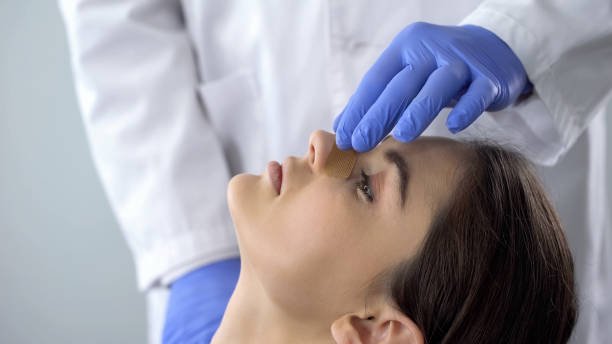Introduction
Rhinoplasty, often referred to as a “nose job,” is one of the most common and sought-after cosmetic surgeries in the world. In Abu Dhabi, with its cutting-edge medical infrastructure and highly skilled surgeons, rhinoplasty has become increasingly popular among those looking to enhance both the appearance and functionality of their nose. While the surgical procedure itself is crucial, preparation plays an equally important role in ensuring a successful outcome. Understanding how to properly prepare for rhinoplasty can significantly improve the recovery process and overall results.
This comprehensive guide will take you through the step-by-step process of preparing for rhinoplasty in Abu Dhabi. We’ll cover everything from choosing the right surgeon and undergoing pre-surgery consultations, to making lifestyle adjustments and ensuring a smooth recovery period. Whether you’re seeking rhinoplasty for cosmetic reasons or to improve nasal function, following these steps will help you approach the procedure with confidence and peace of mind.
Step 1: Researching and Choosing the Right Surgeon
The first and perhaps most important step in preparing for rhinoplasty is selecting the right surgeon. Abu Dhabi boasts a wide range of skilled plastic surgeons, many of whom have extensive experience in rhinoplasty. However, it’s essential to choose a surgeon who is board-certified, has specialized expertise in facial and nasal surgery, and comes highly recommended.
Begin by researching potential surgeons online, looking at their credentials, reviews, and before-and-after photos of previous rhinoplasty patients. Ensure that the surgeon is experienced in handling cases similar to yours, whether you require a subtle cosmetic change or a more complex procedure to correct breathing issues.
Once you have shortlisted a few surgeons, schedule consultations to meet them in person. During these meetings, you can assess the surgeon’s communication style, ask about their experience with different rhinoplasty techniques, and determine whether they understand your aesthetic goals. It’s also important to inquire about the surgical facility where the procedure will be performed, ensuring it meets the highest standards of safety and quality.
Step 2: Attend a Thorough Consultation
A detailed consultation is a crucial aspect of rhinoplasty preparation. Once you’ve chosen your surgeon in Abu Dhabi, your consultation will serve as the first step towards developing a customized surgical plan tailored to your needs.
During the consultation, you will discuss your aesthetic concerns and functional issues with your nose. The surgeon will conduct a detailed facial and nasal analysis, taking into account your bone structure, skin thickness, and other factors that will impact the outcome of the procedure. This is also the time when the surgeon will explain the surgical techniques that could be employed, whether it’s a closed or open rhinoplasty, and whether you need functional corrections like septoplasty.
Additionally, the surgeon may use 3D imaging to show you potential results based on your preferences. This visual representation helps you see how your nose might look after the procedure, ensuring that you and the surgeon are on the same page regarding the desired outcome.
It’s important to use the consultation as an opportunity to ask questions. Be open about your expectations, concerns, and medical history, as these factors will help the surgeon provide the best possible guidance. The consultation will also include a discussion of potential risks, complications, and the recovery process, giving you a realistic understanding of the surgery.
Step 3: Undergo Pre-Operative Medical Assessments
Before undergoing rhinoplasty, you will need to complete a series of medical assessments to ensure you are in good health for surgery. These assessments typically include a physical examination, blood tests, and possibly an electrocardiogram (ECG) to assess your heart function.
Your surgeon may also refer you to an ear, nose, and throat (ENT) specialist to evaluate any functional issues, such as a deviated septum or breathing difficulties. In some cases, functional corrections may be necessary in addition to cosmetic enhancements.
It is important to disclose any underlying health conditions, such as allergies, respiratory problems, or previous nasal surgeries, to your surgeon. These factors can impact the surgical approach and recovery process. If you are taking any medications, especially blood thinners, your surgeon will provide guidance on how to manage them before surgery to minimize the risk of complications.
Step 4: Follow Pre-Surgery Lifestyle Adjustments
Your lifestyle in the weeks leading up to rhinoplasty plays a significant role in how well your body prepares for and recovers from the surgery. Your surgeon will provide specific instructions regarding dietary and lifestyle changes, which you should follow closely for optimal results.
One of the most important pre-surgery guidelines is to stop smoking at least two to four weeks before the procedure. Smoking can interfere with blood circulation and delay healing, increasing the risk of complications. If you are a smoker, consider quitting or significantly reducing your intake in preparation for surgery.
In addition, you should avoid alcohol consumption for at least a week before the procedure. Alcohol can increase the risk of bleeding and interfere with the body’s natural healing processes. It’s also essential to avoid certain medications and supplements, such as aspirin, ibuprofen, and herbal supplements like ginkgo biloba, which can thin the blood and increase bleeding risks.
Eating a healthy, balanced diet rich in vitamins and nutrients will support your body’s ability to heal. Focus on foods high in vitamin C, zinc, and protein to help strengthen your immune system and promote tissue repair.
Step 5: Plan for Post-Surgical Care
Proper planning for post-surgical care is essential for a smooth recovery after rhinoplasty. In Abu Dhabi, many patients have access to excellent post-operative care, but it’s important to prepare your home environment and daily routine for the healing process.
Arrange for someone to accompany you to the surgery and take you home afterward, as you will not be able to drive yourself. It’s also advisable to have someone stay with you for the first 24-48 hours after surgery to assist with basic tasks, as you may experience discomfort and drowsiness due to anesthesia.
Create a comfortable recovery space at home with plenty of pillows to keep your head elevated, as this helps reduce swelling. You’ll also want to have cold compresses, pain medication (prescribed by your surgeon), and easy-to-eat meals ready for the first few days of recovery.
Your surgeon will provide you with detailed post-operative instructions, including how to care for your nose, avoid physical activity, and when to schedule follow-up appointments. It’s crucial to follow these guidelines closely to ensure proper healing and avoid complications.
Step 6: Prepare for Emotional and Mental Well-Being
While rhinoplasty is a physical procedure, it can also have a significant emotional impact. Patients in Abu Dhabi often seek rhinoplasty for both aesthetic enhancement and functional improvement, and it’s normal to feel a mix of excitement and anxiety in the weeks leading up to the surgery.
Take time to prepare yourself mentally for the procedure and the recovery process. Keep in mind that results will not be immediate – it can take several months for swelling to fully subside and for the final outcome to become apparent. Patience is key during this time, as the healing process is gradual.
It’s also important to have realistic expectations about the results. While rhinoplasty can significantly enhance your appearance, it won’t completely change who you are. Make sure you are undergoing the surgery for personal reasons and that your goals align with realistic outcomes.
Consider speaking with a counselor or support group if you have any concerns or emotional apprehension about the procedure. Having a support system in place, whether friends, family, or professionals, can help you manage any pre-surgery stress and ensure a positive mindset going into the procedure.
Step 7: Final Pre-Surgery Preparations
In the final days leading up to your rhinoplasty, you will need to make a few last-minute preparations. Your surgeon will provide a detailed pre-surgery checklist to ensure that you are ready for the procedure.
The night before surgery, make sure to follow your surgeon’s instructions regarding fasting. Most patients are required to stop eating and drinking after midnight before the surgery, as anesthesia is typically administered during rhinoplasty.
Make sure you have all necessary paperwork ready, including identification, insurance information, and any pre-surgery medical forms that need to be completed.
On the day of the surgery, wear comfortable, loose-fitting clothing that is easy to remove, and avoid wearing makeup, jewelry, or contact lenses. Arrive at the surgical facility on time and with a calm and positive attitude, knowing that you’ve prepared thoroughly for the procedure.
Conclusion
Preparing for rhinoplasty in Abu Dhabi requires careful planning, attention to detail, and a commitment to following your surgeon’s guidelines. From selecting the right surgeon and attending a thorough consultation to making lifestyle adjustments and preparing for recovery, each step plays a crucial role in ensuring a successful surgery and a smooth recovery.
By taking the time to prepare physically, emotionally, and mentally, you can approach your rhinoplasty procedure with confidence, knowing that you are well-prepared for every aspect of the surgical journey. With the expert care available in Abu Dhabi, combined with your diligent preparation, you can look forward to achieving the best possible results from your rhinoplasty procedure.



